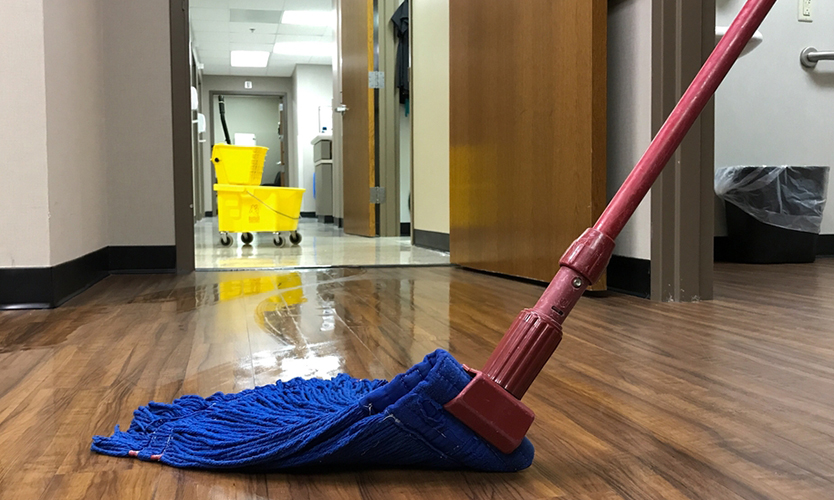Cumulative trauma claim for aging custodian denied
- August 20, 2025
- Posted by: Web workers
- Category: Workers Comp

The Supreme Court of Iowa on Friday denied compensation for cumulative trauma injuries suffered by a custodian who slipped on wet grass in 2008 and continued to suffer after surgery and continued work.
Anita Gumm was 56 years old when we began working for the Easter Seal Society of Iowa, with duties that included laundry work, housekeeping and janitorial duties. Seven months into her employment, she suffered her fall, fracturing her right ankle, according to documents in Anita Gumm v. Easter Seal Society of Iowa Inc., filed in Des Moines, Iowa.
The injury resulted in surgery and permanent partial disability benefits, suffering 17% disability to her lower extremity; she had reached maximum medical improvement in 2009 and was released to return to “full work activity with no restrictions,” documents state. She was also diagnosed with degenerative conditions in her ankle, with her other extremity pain attributed to changes in her gait following her ankle fracture and subsequent surgery, according to the record. In 2014, she was awarded Social Security Disability benefits for her condition, which included arthritis, according to documents.
She continued to suffer pain into 2014, which is when she filed two more workers compensation claims with the Easter Seal Society of Iowa: one for the 2008 injury, acknowledging the statute of limitations had expired, and another for a cumulative trauma injuries possibly suffered on three separate dates between 2012 and 2014 while working for the organization, according to documents.
Citing that the statute of limitations had expired on her injury, a state Workers’ Compensation Commissioner and a district court ruled that a cumulative trauma claim “is not available in these circumstances.” A divided Court of Appeals, citing case law that a cumulative injury claim could be present, reversed and remanded. The state’s highest court on Friday then reversed, denying benefits and citing medical testimony that stated Ms. Gumm “was going to develop arthritis regardless of whether she returned to work,” among other deliberations.
“There was thus sufficient evidence to sustain the commissioner’s finding that Gumm did not suffer a distinct and discrete cumulative injury but merely the aggravation over time of her original 2008 injury,” the state Supreme Court wrote, with one justice taking no part. “Considerable record evidence supports the commissioner’s view that Gumm’s post-2008 difficulties were entirely sequelae to her original injury.”



